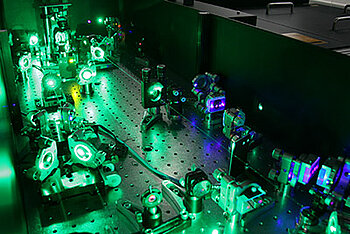Lasers are important tools in many future technologies, medicine and research. In the field of state-of-the-art laser technology and photonics, there have recently been groundbreaking technological developments that have opened up new fields of application time and again. Laser technology is a major driver of innovation in a wide variety of applications and products in many areas of a modern society, thus contributing significantly to economic growth.
For example, in an aging population there is a greater need for health care. Photonics-based screening and medical imaging technologies strengthen the prevention and early detection of disease. In this context, LASERLAB-EUROPE will develop new methods and tools for advanced microscopy and biomedical devices, novel medical therapies and biosensors, and apply the emerging laser-driven particle beam techniques in radiotherapy.
